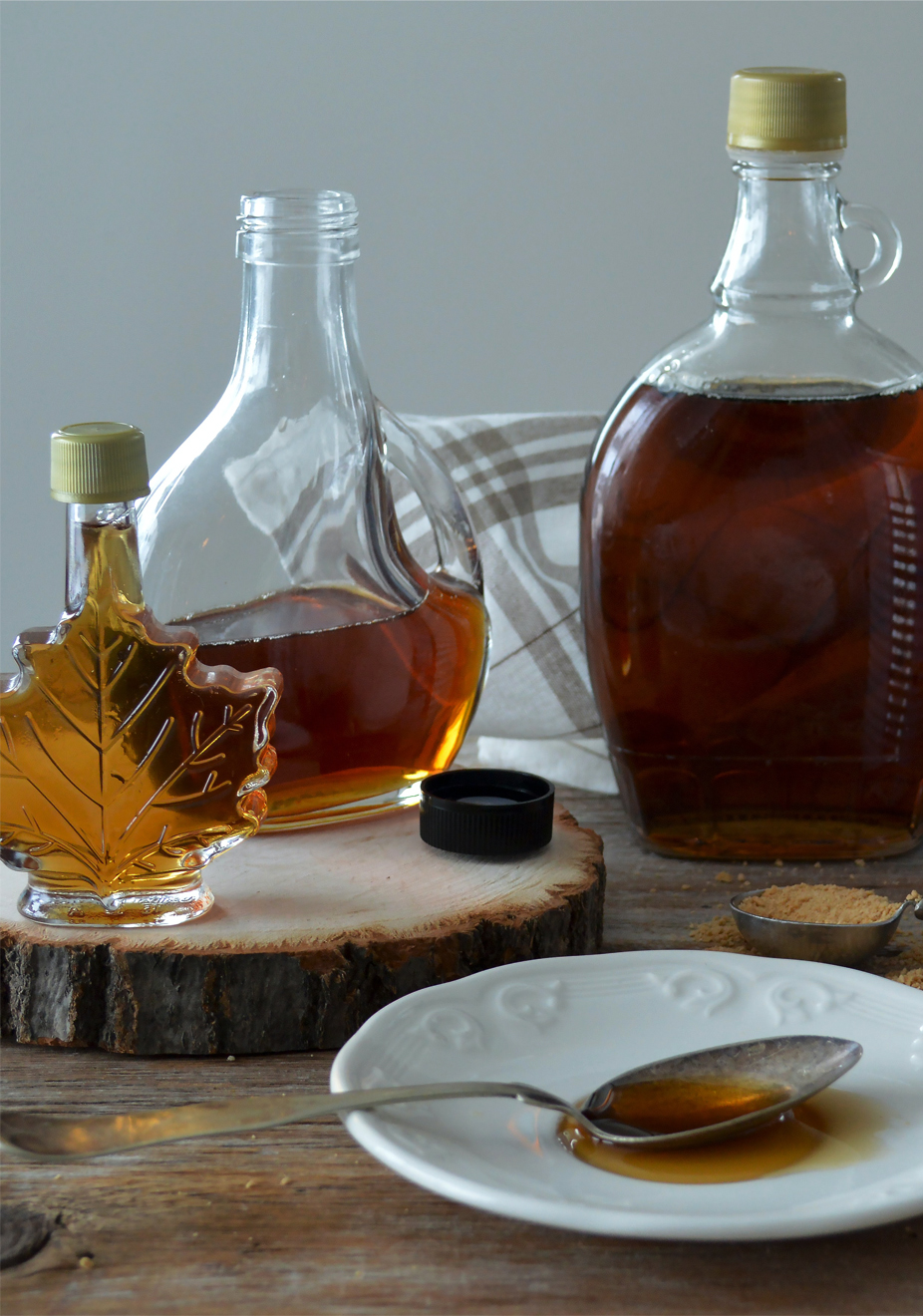Did you know Maple Syrup is better for you than Stevia/Agave Sweeteners?

Maple syrup is what pancake dreams are made of! Thick, golden and deliciously sweet. However, over the past few years, it has poured its way up the wellness ladder, being touted as one of the “healthiest” sugars to use. But when compared to some of the other sweeteners on the market, how does it fare? Read on below to learn more about these three popular sweet ingredients.
MAPLE SYRUP
Maple syrup is loved for its warming, delicate and unmistakable taste. When it comes to nutrition, maple syrup does contain some nutrients such as zinc, calcium, riboflavin and magnesium. It also contains some antioxidants, with studies suggesting that maple syrup’s antioxidant plant nutrients offer a number of health benefits (1). One study demonstrated that replacing all refined sugar in the diet with alternative sugars such as maple syrup would increase the total antioxidant intake as much as eating a single serving of berries or nuts! (2) However, the study suggested that this was based on an intake of 130g of added sugar, which would be around five times above the recommended daily intake of added sugars in the UK. So this would need to be spread out across five days for it to have an effect. If your focus is on antioxidant intake, you’re better off consuming the nuts/berries each day.
The glycemic index of maple syrup is around 54, with white table sugar being around 65, which suggests that maple syrup may be a better choice when it comes to blood sugar regulation. The best way to use maple syrup to take advantage of its lower glycemic index is to use less of it than you would normal sugars, as the syrup is sweet enough to go a long way.
This winter, try roasting squash or Brussels sprouts with a drizzle of maple syrup, brush onto baked salmon fillets, find it in the MEDAHUMAN beverages or add into your Christmas cocktail instead of simple syrups.
STEVIA
Stevia is a popular “healthy” sugar alternative, thanks to its perceived wellness halo. However, we mustn’t forget that stevia is still a sweetener.
Stevia is a sweetener made from the extracted leaves of the stevia plant, and is 300 times sweeter than white sugar, and has zero impact on the body’s blood sugar levels. However, that doesn’t mean it’s necessarily the healthiest choice. Sweeteners, natural or not, can impact our sugar cravings – consuming something that tastes sweet, primes the body to receive sugar for energy. When we then don’t give it actual energy, it can make us crave energy rich foods or hold onto fat for additional energy.
In addition, consumer-ready stevia usually contains sugar alcohols, non-digestible carbohydrates that may irritate the digestive system, resulting in symptoms such as cramping, bloating and gas. One study also reported a potential link between sweeteners including stevia, and disruption in the beneficial intestinal flora. The same study also suggested that sweeteners may induce glucose intolerance and metabolic disorders. (3)
AGAVE
Agave is a form of sugar derived from the same plant that tequila is made from. It looks similar to honey, but tastes sweeter and has a lower glycemic index due to being made up of 84% fructose. However, fructose is digested in the liver, and any fructose that doesn’t make it through the liver is potentially stored as body fat. As fructose is considered to be one of the unfavourable forms of sugar, use agave in minimal quantities and buy organic, raw agave rather than the cheaper, highly processed version. When comparing Agave to maple syrup, Agave contains 30 more calories than maple syrup per 100g.
Overall, if you chose maple syrup as your sweetener of choice, use so in moderation, as with all sweeteners. On the glycemic table, it has been shown that agave affects blood sugar levels the same way that honey does, and when it comes to antioxidant content, pure maple syrup comes in much higher than agave. (4)
To conclude, we should not be focussing on getting nutrients and overall health benefits from sugars and should focus on whole food, natural food sources such as fresh fruits, vegetables, nuts and seeds when it comes to key micronutrients. Excessive sugar consumption can result in chronic disease, obesity and hypertension so consuming sugar in moderation is fundamental.
https://pubmed.ncbi.nlm.nih.gov/21675726/ (1)
https://www.sciencedirect.com/science/article/abs/pii/S0002822308018919 (2)